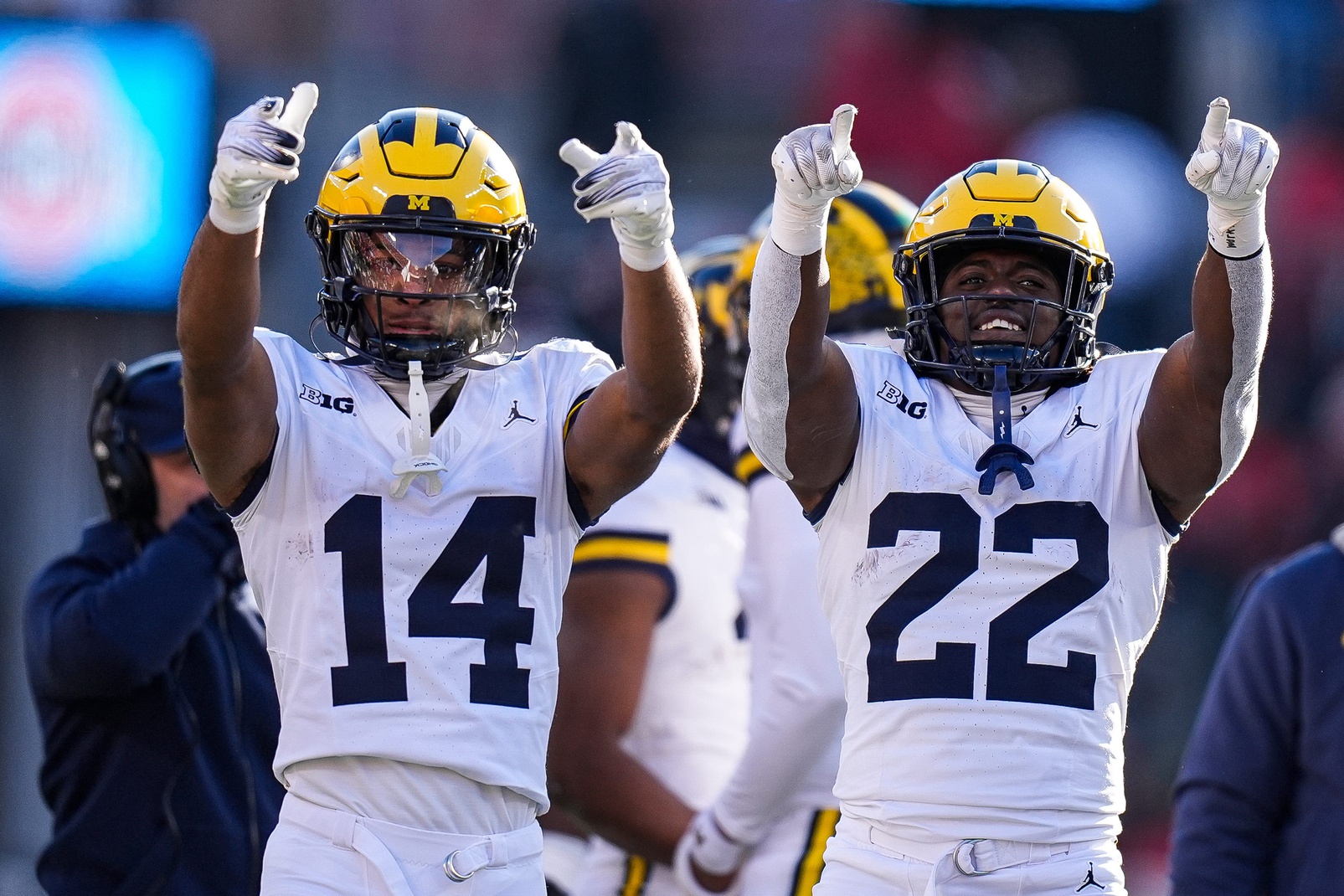On Friday, Michigan announced it would embark on a monthslong appeals process to challenge penalties as a result of the football team’s sign-stealing scandal.
The appeal primarily aims to lessen or eliminate the steep fines that could range from $34 million to $36 million, a source confirmed to FOS.
The Wolverines were hit with a stiff set of fines: one $50,000 fine, one equivalent to 10% of the football budget, one equivalent to 10% of the value of football scholarships, and one equivalent to two years of postseason revenue for 2025 and 2026. The numbers originally looked to total about $20 million, but now appear to to surpass $30 million.
The process runs through the NCAA’s Infractions Appeals Committee, which consists of seven people not part of the original infractions committee. The process could take between five and seven months. Michigan will not have to pay the financial penalty until the appeals process concludes.
The first three months center around an exchange of written documents, similar to a formal court case, according to the NCAA’s website. The Wolverines will have 30 days to file a written appeal, which the NCAA’s Committee on Infractions will respond to within another month. The third month will include rebuttals and additional submissions.
Then, the Infractions Appeals Committee may choose to hold oral arguments, a process that could be completed within another one to two months. However, Michigan can’t request an oral argument—which will only be held “in extenuating circumstances…if a majority of the committee members reviewing the case determine that a decision cannot be rendered in the absence of oral argument,” according to a copy of the committee’s operating procedures. The appeals committee also won’t consider additional evidence not presented during the original investigation, except in “limited circumstances.”
On why they decided to appeal, the University of Michigan said in a statement: “Respectfully, in a number of instances the decision makes fundamental errors in interpreting NCAA bylaws; and it includes a number of conclusions that are directly contrary to the evidence – or lack of evidence – in the record.” Michigan athletic director Warde Manuel added: “I acknowledge the Committee on Infractions’ decision to not penalize our current student-athletes by eliminating postseason opportunities; however, a postseason ban should never have been a consideration in this case. I fully support the university’s decision to pursue an appeal.”
An NCAA spokesperson said of the process: “The Infractions Appeals Committee has the final say, affirming if there is information in the record supporting the decision and not setting aside COI decisions unless no reasonable person could have made the decision after considering the record.”
In addition to the fines, the Wolverines were also hit with probation and several show-causes for current coach Sherrone Moore (who will also serve three total game suspensions), as well as former coach Jim Harbaugh and former football staffer Connor Stalions, who orchestrated the operation. The show-cause orders for Harbaugh and Stalions prohibit them from engaging in athletically related activities, though Moore will be able to do so.







![[Subscription Customers Only] Jun 15, 2025; Seattle, Washington, USA; Botafogo owner John Textor inside the stadium before the match during a group stage match of the 2025 FIFA Club World Cup at Lumen Field.](https://frontofficesports.com/wp-content/uploads/2026/02/USATSI_26465842_168416386_lowres-scaled.jpg?quality=100&w=1024)
![[Subscription Customers Only] Jul 13, 2025; East Rutherford, New Jersey, USA; Chelsea FC midfielder Cole Palmer (10) celebrates winning the final of the 2025 FIFA Club World Cup at MetLife Stadium](https://frontofficesports.com/wp-content/uploads/2026/02/USATSI_26636703-scaled-e1770932227605.jpg?quality=100&w=1024)








